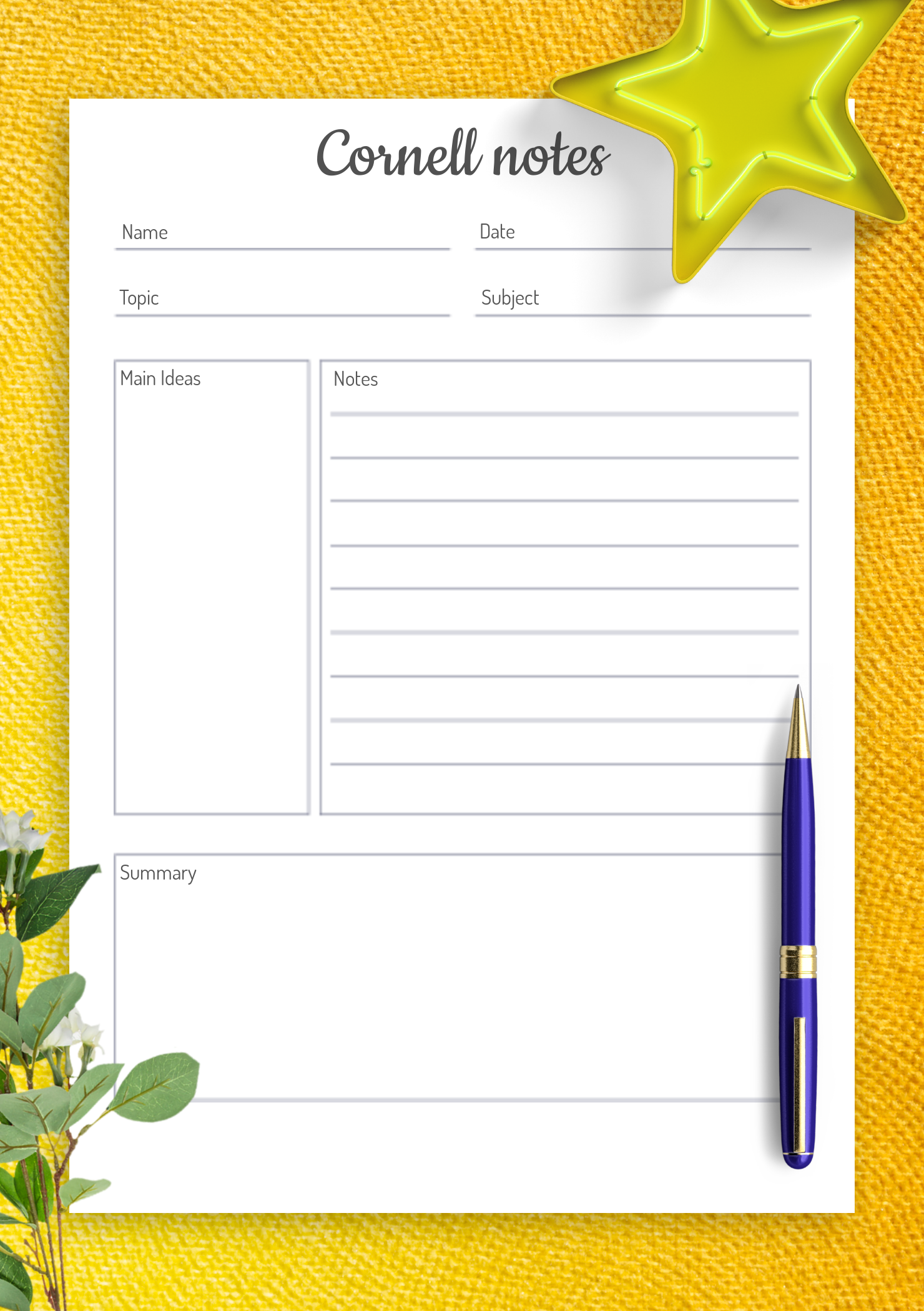

The student is encouraged to reflect on the material and review the notes regularly. When reviewing the material, the student can cover the note-taking (right) column while answering the questions/keywords in the key word or cue (left) column. These notes can be taken from any source of information, such as fiction books, DVDs, lectures, or textbooks, etc. To assist with future reviews, relevant questions or keywords (which should be recorded as soon as possible, so that the lecture and questions will be fresh in the student's mind) are written in the left-hand keyword column. Long sentences are avoided symbols or abbreviations are used instead. Notes from a lecture or text are written in the note-taking column notes usually consist of the main ideas of the text or lecture, and longer ideas are paraphrased.

The student leaves open five to seven lines, or about two inches (5 cm), at the bottom of the page. The student divides the paper into two columns: the note-taking column (usually on the right) is twice the size of the questions/keyword column, which is on the left.

There are several ways of taking notes, but one of the most common is the "two-column" notes style. This system of taking notes is designed for use by a high school or college level student. The Cornell method provides a systematic format for condensing and organizing notes.


 0 kommentar(er)
0 kommentar(er)
